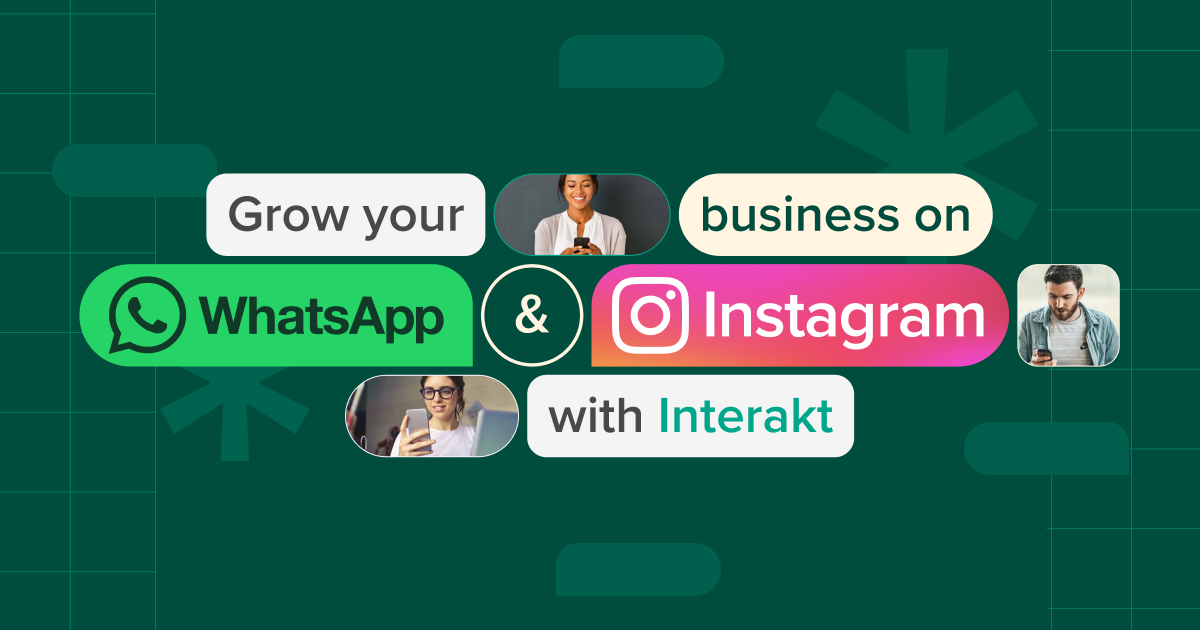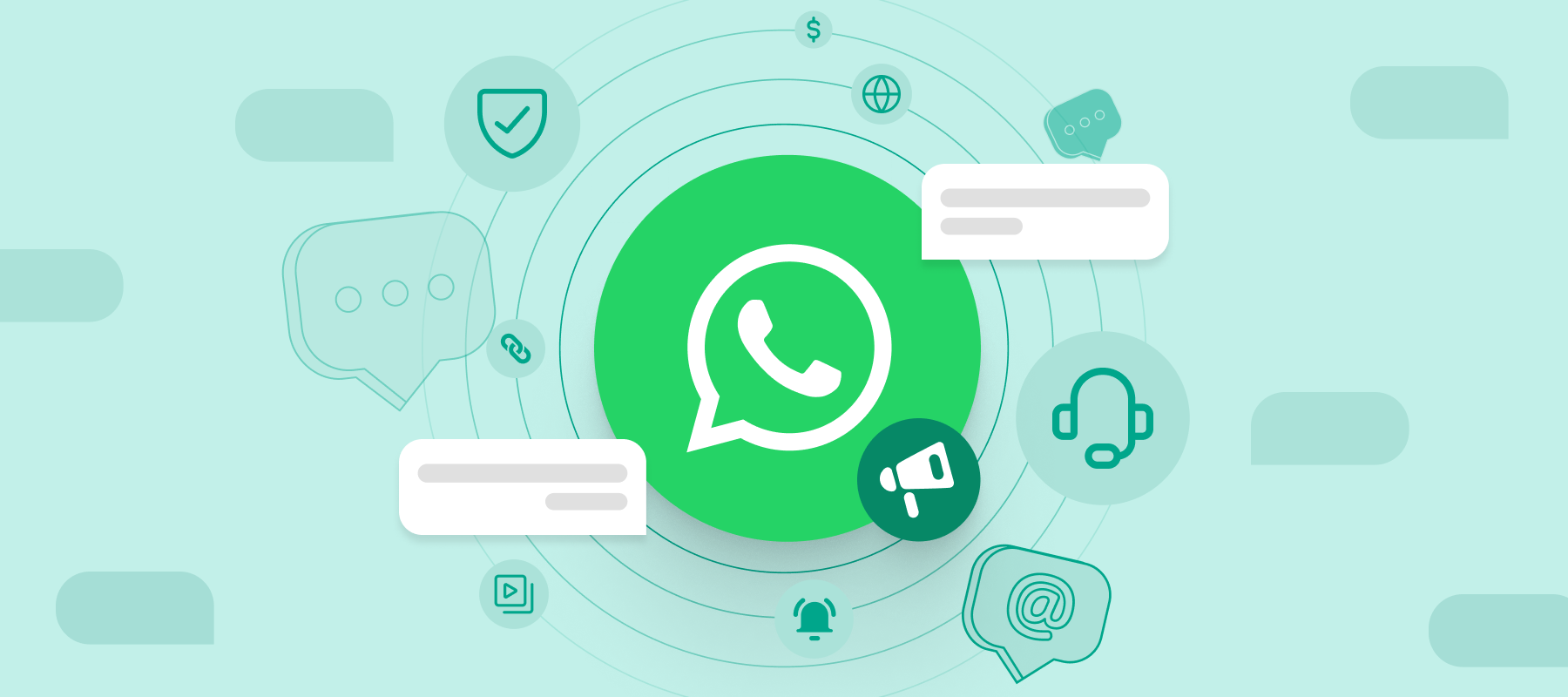In today’s digital age, businesses are constantly searching for efficient communication tools to enhance customer interaction. With its massive user base, WhatsApp has become a preferred platform for businesses to connect with customers. However, businesses often find themselves at a crossroads when choosing between the WhatsApp Business App and WhatsApp Business API. This guide aims to provide a thorough understanding of these two options and help you make an informed decision.
Understanding WhatsApp Business App
WhatsApp Business App Features
Launched in 2018, the WhatsApp Business App is designed for small and medium-sized businesses to facilitate direct communication with customers. It offers several features tailored to meet the needs of such businesses:
- Business Profile: Create a profile with essential information like address, business description, email, and website.
- Quick Replies: Save and reuse frequent messages to respond to common customer inquiries.
- Labels: Organize chats and contacts using labels for easy tracking.
- Automated Messages: Set up greeting messages and away messages to engage with customers even when offline.
Despite its advantages, the WhatsApp Business App has limitations. It is limited to a single device and phone number, making it less suitable for larger organizations needing multi-user access.
WhatsApp Business for Small Business Marketing
For small businesses, the WhatsApp Business App is an excellent marketing tool. It allows direct engagement with customers, building trust and loyalty. Businesses can use it to send updates, run promotions, and provide customer support, making it a vital part of their marketing strategy.
Exploring WhatsApp Business API
WhatsApp API for Large Businesses
The WhatsApp Business API is tailored for medium to large enterprises that require high-volume messaging and integration with their existing systems. It offers a scalable solution with robust features:
- Integration: Seamlessly integrate with CRM systems, chatbots, and other enterprise software.
- Multi-user Access: Enable multiple users to manage and respond to customer queries simultaneously.
- Rich Media Messages: Send images, documents, and other media to enhance customer interaction.
WhatsApp Business API Benefits
The API provides numerous benefits, including enhanced security, scalability, and automation capabilities. It allows businesses to automate workflows, improve response times, and maintain a consistent brand voice across customer interactions. However, it requires a more complex setup and ongoing maintenance, making it more suitable for larger businesses with dedicated IT resources.
WhatsApp Business API Pros and Cons
| Pros | Cons |
|---|---|
| Scalability for large businesses | Not free, set-up charges |
| Integration with existing systems | Requires technical expertise, if done without an official BSP |
| Automation capabilities | Not suitable for micro businesses |
WhatsApp Business App vs WhatsApp API: Key Differences
1. Campaign Reach
WhatsApp Business App: Best for small, local campaigns. You can manually send updates, promotions, and reminders to your customers but it’s limited in scale. Broadcast lists max out at 256 contacts, which can be restrictive for growing businesses.
WhatsApp Business API: Designed for high-volume marketing campaigns. Businesses can send bulk notifications, run retargeting campaigns, and deliver personalized promotions to thousands of customers at once.
2. Personalization & Automation
WhatsApp Business App: Offers basic personalization (like using customer names in messages) and some automation through greeting or away messages. However, it lacks advanced campaign workflows.
WhatsApp Business API: Enables advanced automation with CRM integrations, chatbots, and dynamic campaigns. Businesses can create automated drip campaigns, recover abandoned carts, or send personalized product recommendations at scale.
3. Customer Engagement
WhatsApp Business App: Ideal for building close, personal relationships with a smaller customer base. The one-to-one interaction builds trust but becomes harder to manage as customer numbers grow.
WhatsApp Business API: Helps maintain engagement across a large audience without losing personalization. Features like interactive message templates (quick reply buttons, call-to-action buttons, product carousels) make campaigns more engaging.
4. Analytics & Insights
WhatsApp Business App: Provides very limited insights (like number of messages sent/delivered). Not enough for data-driven marketing.
WhatsApp Business API: Offers detailed reporting through third-party platforms or BSPs (Business Solution Providers) like Interakt. You can track campaign performance, measure conversions, and optimize ROI.
5. Cost Factor
WhatsApp Business App: Free to use, making it perfect for micro and small businesses just starting with WhatsApp marketing.
WhatsApp Business API: Involves message-based pricing (set by Meta) and may require investment in a BSP partner. While costlier, it delivers far greater reach, automation, and ROI potential.
Bottom line:
Choose the WhatsApp Business App if you’re a small business running simple, personal campaigns.
Opt for the WhatsApp Business API if you want to scale your marketing, automate workflows, and track performance effectively.
Both the WhatsApp Business App and API can be powerful tools for WhatsApp marketing. They allow businesses to engage with customers through personalized messages, promotions, and customer support. Choosing the right tool depends on your business scale and specific requirements.
Deciding between the WhatsApp Business App and API involves assessing your business needs, resources, and growth goals. For small businesses, the WhatsApp Business App offers a straightforward, cost-effective solution. In contrast, larger enterprises will benefit from the WhatsApp Business API’s advanced features and integration capabilities. To explore more about WhatsApp’s offerings, visit Interakt’s WhatsApp Marketing Automation
If you’re looking to enhance your business communication strategy, consider your specific requirements and choose the solution that aligns with your objectives. Whether it’s the simplicity of the WhatsApp Business App or the advanced capabilities of the API, WhatsApp provides a robust platform for effective customer engagement.

